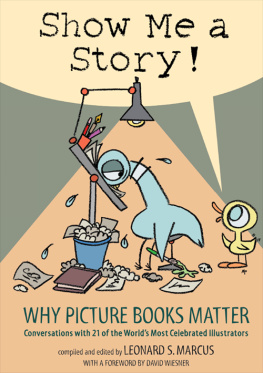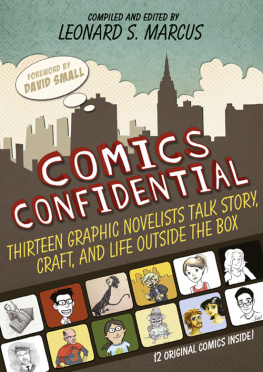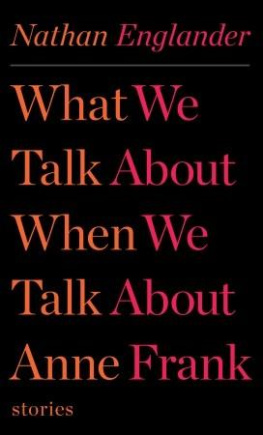THIS IS A BORZOI BOOK PUBLISHED BY ALFRED A . KNOPF
All rights reserved. Published in the United States by Alfred A. Knopf, a division of Penguin Random House LLC, New York, and distributed in Canada by Random House of Canada, a division of Penguin Random House Canada Limited, Toronto.
Knopf, Borzoi Books, and the colophon are registered trademarks of Penguin Random House LLC.
Names: Marcus, Ben, [date] author.
Title: Speeding pieces of light : stories / Ben Marcus.
Description: First edition, | New York : Alfred A. Knopf, 2018. | Description based on print version record and CIP data provided by publisher; resource not viewed.
Identifiers: LCCN 2017054648 (print) | LCCN 2017057668 (ebook) | ISBN 9781101947456 (hardcover : acid-free paper) | ISBN 9781101947463 (ebook)
Subjects: | BISAC: FICTION / Literary. | FICTION / Short Stories (single author).
Classification: LCC PS3563.A6375 (ebook) | LCC PS3563.A6375 A6 2018 (print) | DDC 813/.54dc23
This is a work of fiction. Names, characters, places, and incidents either are the product of the authors imagination or are used fictitiously. Any resemblance to actual persons, living or dead, events, or locales is entirely coincidental.
Cold Little Bird
It started with bedtime. A coldness. A formality.
Martin and Rachel tucked the boy in, as was their habit, then stooped to kiss him good night.
Please dont do that, he said, turning to face the wall.
They took it as teasing, flopped onto his bed to nuzzle and tickle him.
The boy turned rigid, endured the cuddle, then barked out at them, I really dont like that!
Jonah? Martin said, sitting up.
I dont want your help at bedtime anymore, he said. Im not a baby. You have Lester. Go cuddle with him.
Sweetheart, Rachel said. Were not helping you. Were just saying good night. You like kisses, right? Dont you like kisses and cuddles? You big silly.
Jonah hid under the blankets. A classic pout. Except that he wasnt a pouter, he wasnt a hider. He was a reserved boy who generally took a scientific interest in the tantrums and emotional extravagances of other children, marveling at them as though they were some strange form of street theater.
Martin tried to tickle the blanketed lump of person that was his son. He didnt know what part of Jonah he was touching. He just dug at him with a stiff hand, thinking a laugh would come out, some sound of pleasure. It used to work. One stab of the finger and the kid exploded with giggles. But Jonah didnt speak, didnt move.
We love you so much. You know? Martin said. So we like to show it. It feels good.
Not to me. I dont feel that way.
What way? What do you mean?
They sat with him, perplexed, and tried to rub his back, but hed rolled to the edge of the bed, nearly flattening himself against the wall.
I dont love you, Jonah said.
Oh, now, Martin said. Youre just tired. No need to say that sort of stuff. Get some rest.
You told me to tell the truth, and Im telling the truth. I. Dont. Love. You.
This happened. Kids tested their attachments. They tried to push you away to see just how much it would take to really lose you. As a parent, you took the blow, even sharpened the knife yourself before handing it to the little fiends, who stepped right up and plunged. Or so Martin had heard.
They hovered by Jonahs bed, assuring him that it had been a long dayalthough the day had been entirely unremarkableand he would feel better in the morning.
Martin felt like a robot saying these things. He felt like a robot thinking them. There was nothing to do but leave the boy there, let him sleep it off.
Downstairs, they cleaned the kitchen in silence. Rachel was troubled or not, he couldnt tell, and it was better not to check. In some way, Martin was captivated. If he were Jonah, ten years old and reasonably smart, starting to sniff out the world and find his angle, this might be something worth exploring. Getting rid of the soft, warm, dumb providers who spun opportunity around you relentlessly, answering your every need. Good play, Jonah. But how do you follow such a strong, definitive opening move? What now?
Over the next few weeks, Jonah stuck by his statement, wandering through their lives like some prisoner of war whod been trained not to talk. He endured his parents, leaving for school in the morning with scarcely a goodbye. Upon coming home, he put away his coat and shoes, did his homework without prompting. He helped himself to snacks, dragging a chair into the kitchen so that he could climb on the counter. He got his own glass, filling it with water at the sink. When he was done eating, he loaded his dishes in the dishwasher. Martin, working from home in the afternoons, watched all this, impressed but bothered. He kept offering to help, but Jonah always said that he was fine, he could handle it. At bedtime, Martin and Rachel still fussed over Lester, who, at six years old, regressed and babified himself in order to drink up the extra attention. Jonah insisted on saying good night with no kiss, no hug. He shut his door and disappeared every night at 8 p.m.
When Martin or Rachel caught Jonahs eye, the boy forced a smile at them. But it was so obviously fake. Could a boy his age do that?
Of course, Rachel said. You think he doesnt know how to pretend?
No, I know he can pretend. But this seems different. I mean, to have to pretend that hes happy to see us. First of all, what the fuck is he so upset about? And, second, it just seems so kind ofgrown-up. In the worst possible way. A fake smile. Its a tool one uses with strangers.
Well, I dont know. Hes ten. He has social skills. He can hide his feelings. Thats not such an advanced thing to do.
Martin studied his wife.
Okay, so you think everythings fine?
I think maybe hes growing up and you dont like it.
And you like it? Thats what youre saying? You like this?
His voice had gone up. He had lost control for a minute there, and, as per motherfucking usual, it was a deal breaker. Rachel put up her hand, and she was gone. From the other room, he heard her say, Im not going to talk to you when youre like this.



















